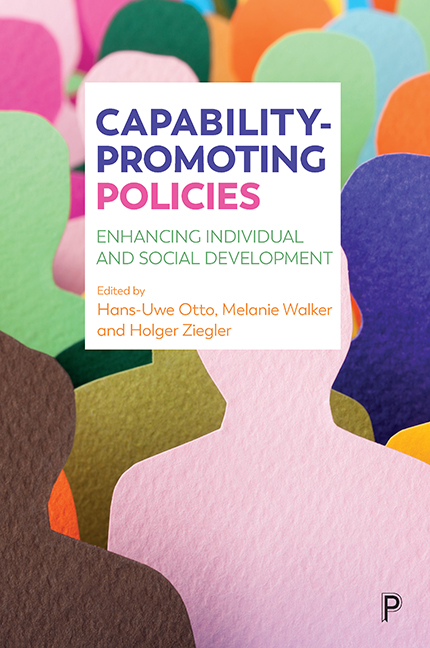Twelve - Capabilities and the challenge to inclusive schooling
Published online by Cambridge University Press: 12 April 2022
Summary
This chapter proposes an ethical model of inclusion that views inclusion as social participation. It thus opposes ideas of inclusion such as those commonly found in systems theory, for example, where it is understood in purely instrumental-functional terms and on a societal level (Luhmann, 1984; Stichweh, 2009). From the perspective of systems theory, inclusion is merely a binary question of being ‘in’ or ‘out’. There are no processes of inclusion and no communities as interpersonal associations that include or exclude. This chapter aims to offer an alternative to this vision, arguing that we can refine our understanding of what we view as ‘full’ or ‘substantive’ inclusion. Against the background of a purely functional, explicitly nonnormative understanding of inclusion, it offers a normative model of inclusion that relates itself to a broad theory of human flourishing and individual and societal development embraced by the capability approach.
The proposed model is based on two intuitions. The first of these – inclusion understood as a social phenomenon, as already mentioned – can be thought of in both communal and societal terms.
In the communal perspective, people interact as specific others. The associated forms of inclusion are directly interpersonal and the forms of recognition that are thus established, and also express inclusion in a sense, are horizontal and interpersonal as well. Friendship is a paradigmatic form of communal inclusion. It is formed and supported by the mutual feelings of trust and affection among all partners (two or more people).
In the societal perspective, people are abstracted from their subjective feelings, interests and characteristics, and are considered as abstract others, typically as citizens. In this case, inclusion is mediated by institutions, for example when authorities design and construct a building that is accessible to everyone, including wheelchair users and blind people. This form of inclusion is mediated institutionally because it is not acted out between specific persons (as in communal inclusion), but instead reflects the attitudes of a particular authority and thus of the state, in a certain manner, and applies these attitudes to abstract others, such as the users of a building.
In addition to these distinct forms of interpersonal, communal inclusion and institutionally mediated societal inclusion, there are naturally many intermediate forms.
- Type
- Chapter
- Information
- Capability-Promoting PoliciesEnhancing Individual and Social Development, pp. 219 - 236Publisher: Bristol University PressPrint publication year: 2017



